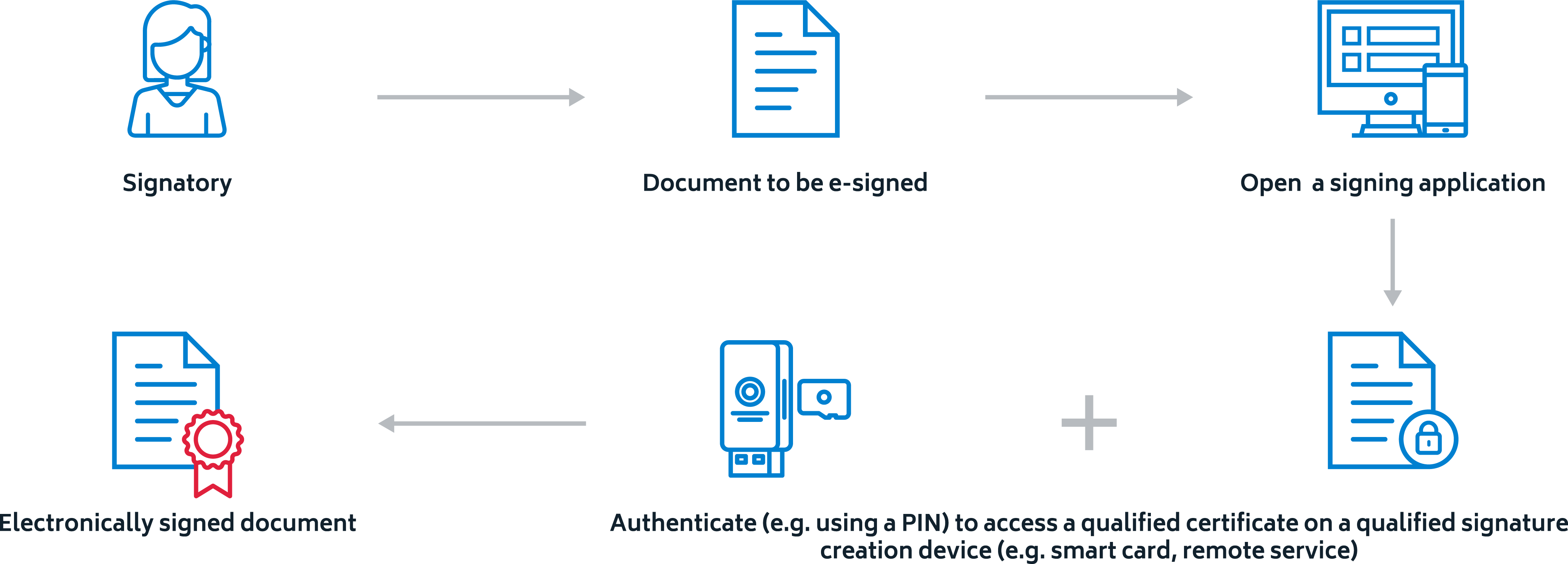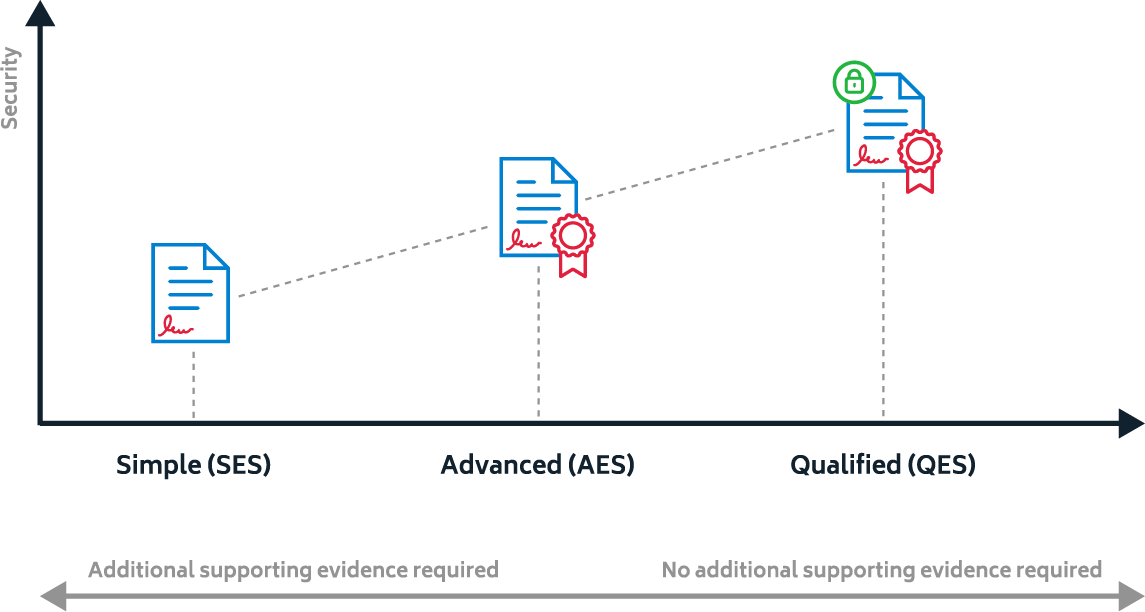WHAT IS AN ELECTRONIC SIGNATURE?
An electronic signature is an electronic indication of a person's intent to agree to the content of a document or a set of data to which the signature relates. Like its handwritten counterpart in the offline world, an electronic signature is a legal concept capturing the signatory's intent to be bound by the terms of the signed document.

Three types of electronic signatures
The eIDAS Regulation defines three levels of electronic signature: 'simple' electronic signature, advanced electronic signature and qualified electronic signature. The requirements of each level build on the requirements of the level below it, such that a qualified electronic signature meets the most requirements and a 'simple' electronic signature the least.
Electronic Signatures
An electronic signature is defined as 'data in electronic form which is attached to or logically associated with other data in electronic form and which is used by the signatory to sign' (eIDAS Article 3) . Thus, something as simple as writing your name under an e-mail might constitute an electronic signature.
Advanced Electronic Signatures
An advanced electronic signature (eIDAS Article 3) is an electronic signature which is additionally:
- uniquely linked to and capable of identifying the signatory;
- created in a way that allows the signatory to retain control;
- linked to the document in a way that any subsequent change of the data is detectable.
The most commonly used technology able to provide these features is the use of a public-key infrastructure (PKI), which involves the use of certificates and cryptographic keys.
Qualified Electronic Signatures
A qualified electronic signature (eIDAS Article 3) is an advanced electronic signature which is additionally:
- created by a qualified signature creation device;
- and is based on a qualified certificate for electronic signatures.
Signature creation devices come in many forms to protect the electronic signature creation data of the signatory, such as smartcards, SIM cards, USB sticks. 'Remote signature creation devices' can also be used where the device is not in the physical possession of the signatory, but managed by a provider. Those remote qualified signature solutions offer an improved user experience while maintaining the legal certainty offered by qualified electronic signatures.
Qualified certificates for electronic signatures are provided by (public and private) providers which have been granted a qualified status by a national competent authority as indicated in the national 'trusted lists' of the EU Member State. Those lists can be accessed through the Trusted List Browser. Many providers of qualified certificates will deliver the corresponding private key on a qualified signature creation device.
While different levels of electronic signatures may be appropriate in different contexts, only qualified electronic signatures are explicitly recognized to have the equivalent legal effect of hand-written signatures all over the EU.

Contracts
sales, employment, lease, insurance, etc.
Transactions
e-commerce, online banking, etc.
Administrative procedures
tax declarations, requests for birth certificates, etc.
When to use an electronic signature?
Electronic signatures can be used in a variety of situations. As their legal effects are equivalent to the ones of handwritten signatures, qualified electronic signatures can be used in any situation, even cross-border, where handwritten signatures are used, such as:
Electronic signatures in the European Union

Benefits of electronic signature for end users
Electronic signing allows for the full digitalization of business processes, eliminating the time and costs of printing, faxing, mailing, copying, scanning and filing in paper formats which presents many disadvantages:
- risk of loss, destruction and incompleteness
- difficulty to search, edit and share
- need for bulky, physical storage space
By eliminating these burdens, governments, companies and citizens implementing the electronic signature will:
- save significant time
- enhance the security of the processes
- reduce operational costs
- cut carbon footprint
- improve all parties' satisfaction
Electronic signing is fast, green, secure and extremely convenient, contributing to an improved overall experience.
Need Help?
Office hours: 09:30 - 18:00 (Monday to Friday)
+351 253 560 650/651
(call to the national fixed network)


